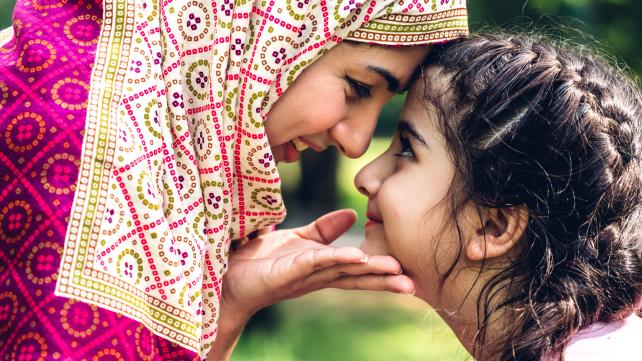
When you hear of “homeschooling” what are the first thoughts that come to mind? For most, the theory is that homeschooling is a replacement for school, and thus, the focus is on the educational aspect - subjects such as math, reading, language arts, science, worksheets, and lesson plans. Whilst these are all crucial components to the learning process, “schooling” is only one small portion of homeschooling and the curriculum obviously covers all of that. But the curriculum is only part of schooling and it should not define your family's homeschooling experience as a whole. Connection is what ultimately provides the atmosphere for growth, learning, and healthy development.
So, what is connection? Connection is being physically and emotionally present for your child. Connection is enjoying, savoring, and being grateful for being in their presence. Connection is paying attention and being sincerely interested. Connection is openness; connection is curiosity. Connection is putting yourself into a child’s experience; imagining what it’s like to be them. Connection demands that we allow ourselves not to know, but to be open to learning without controlling the outcome.
Connection enhances the feeling of safety and acceptance a child has, so they can venture forth in learning and life. It works deep inside, creating receptivity, curiosity, respect, and growth. Moreover, learning is an ongoing process. To learn you must encounter new information, pay attention to it, connect it with what you already know, store it in your memory, and apply it. Therefore, parents must take time to build connections with their children to create a safe, consistent place for learning to occur.
All the curriculum can be applied but if the student does not acquire or feel connection, the learning will not be maximized. Here are a few examples of essential connections:
- Connection to self
- Connection to family
- Connection to close friends
- Connection to the larger community
- Connection to the natural and physical world
- Connection to Allah and His guidance
- Connection to interests
Allah has created human beings to be driven by finding connections: connections among their own thoughts and experiences, connections with those whose paths they cross throughout their lives, and connections with His creations and signs. Humans are relational beings. We know that connection is foundational to human development and learning. Connection is essential to healthy development in children, making children feel important, and most importantly, NOT alone. And these feelings of connection become internalized and give children confidence, increasing their self-esteem.
Tips to Cultivate Connection
It takes a conscious effort to build connections with our children. Here are five tried-and-true tips that can help.
1. Detach from screens!
Whether it is our computers, our televisions or our phones, recognize how enticing these electronics are and also how they get in the way. Be deliberate in your use and try to avoid using them as much as possible when you are with your children.
2. Practice mindfulness.
Mindfulness is a powerful skill that helps us to work with our emotional states, and thoughts so that we can be present to others. Mindfulness helps us get grounded and present.
3. Establish times of the day that you commit to connection.
Make a plan to spend 15-30 minutes just being with your children. When you establish this time, the quality of presence will spill over into other parts of your day.
4. Learn to listen.
Listening is truly a skill. Train yourself to listen without judgment. This can be so hard! We have high expectations and it is easy for expectations to transform into judgment. Be conscious of how you do that and work to avoid it. Your children (and you) will benefit.
5. Pray and do acts of worship as a family.
These are the moments when we are connecting with our Creator and with each other. Sit with your children after performing prayer and make dhikr and/or tasbeeh together. Hold them near you. Speak gently and create a calm and loving environment that they will always connect with worship.
Creating a foundation built on the connection will allow for a more open learning environment. It also establishes an expectation that communication and collaboration are valued in the homeschool class, which your child will embrace throughout their learning journey. Connection must be foundational if children are to grow up with a strong sense of self and with their instinctual desire to learn intact. And it must be prioritized because it has the potential to have a significant impact on how you homeschool your children.
Miriam Mohamed is a mother to seven children and a granny to two cats! She loves trying new things and learning cool facts. She has taught in an Islamic school setting, has experience assisting children with special needs, and enjoys volunteering and being a part of the community. Miriam lives in Chicago with her beautiful flowering cherry tree and big family.



Add new comment